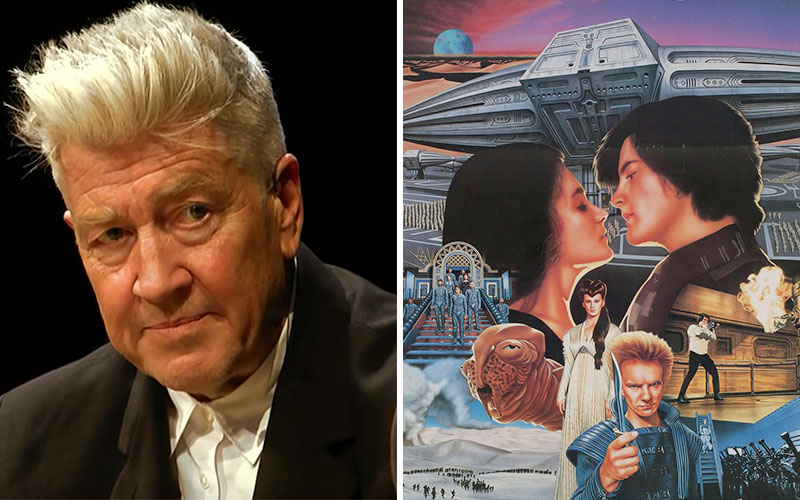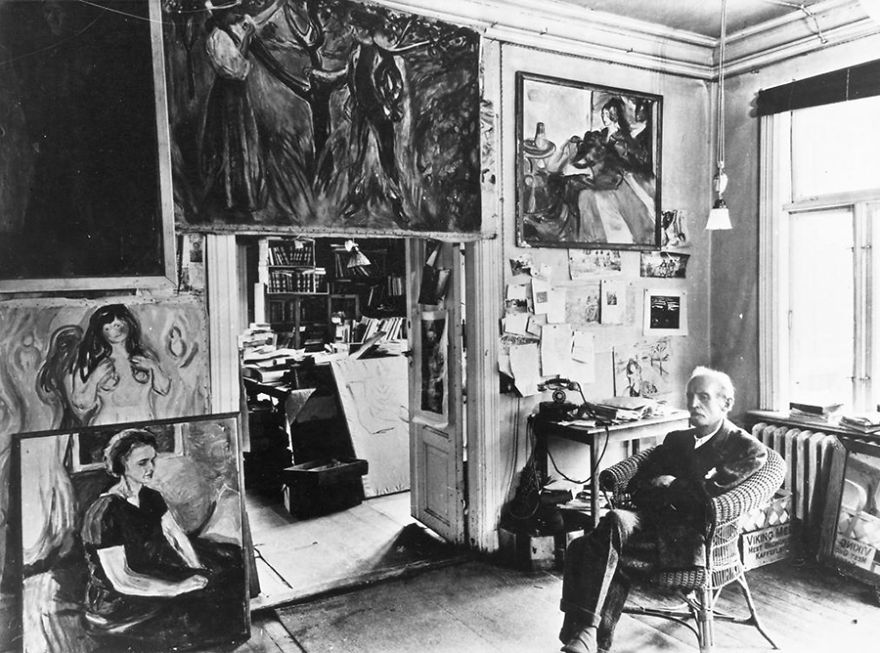
In the world of cinema, the relationship between a director and their film is often akin to that of a parent and child. However, there are instances where this bond is severed, leading to the fascinating phenomenon of films disowned by their directors. Here are 10 notable examples of such “cinematic orphans.”
1. “Dune” (1984) – David Lynch
David Lynch, known for his unique, surreal filmmaking style, disowned his 1984 adaptation of Frank Herbert’s “Dune.” The film was a commercial and critical failure, and Lynch attributed this to the studio’s interference and the lack of creative control he had over the final product. He was so disappointed that he had his name removed from the extended TV version, which is credited to the pseudonym Alan Smithee – a name often used when directors want to disassociate themselves from a project.
He has since refused to discuss the project in interviews.
2. “Fear and Desire” (1953) – Stanley Kubrick
Stanley Kubrick, one of the most influential directors in cinematic history, disowned his first feature film, “Fear and Desire.” The film was produced and released at the height of the Korean War and was not about any specific war. The reasons behind Kubrick’s disowning of the film seem to be rooted in his dissatisfaction with the final product and its lack of commercial success. He was also likely unhappy with the way the film was received and interpreted by audiences and critics.
Kubrick made significant efforts to prevent the film from being circulated. It’s rumored that he went as far as destroying the original negative of the film and aimed to eliminate any remaining prints once the film was no longer in distribution. Despite these attempts, a few prints managed to survive, tucked away in private collections.
Despite the film’s copyright lapsing and the property being in the public domain, Kubrick tried to discourage it from gaining an audience. Kubrick was just 24 when he made the film and issued a statement that severely downplayed the film’s value, and he called “Fear and Desire” “a bumbling amateur film exercise.”
3. “American History X” (1998) – Tony Kaye
Tony Kaye’s “American History X” is a powerful drama about racism and redemption. However, Kaye disowned the film after a highly publicized dispute with New Line Cinema over the final cut. After the initial screening, Kaye was given the opportunity to edit the film. However, the studio was not satisfied with his version and brought in the film’s star, Edward Norton, to help re-edit the film.
Kaye was unhappy with this version and publicly disowned the film, even attempting to have his name removed from the credits. He also filed a lawsuit against the studio, claiming that his creative rights were violated. This dispute led to Kaye being ostracized from Hollywood for a number of years.
4. “The Fantastic Four” (1994) – Oley Sassone
The 1994 adaptation of “The Fantastic Four,” which was never officially released, was directed by Oley Sassone and based on the Marvel Comics superhero team. The film was the brainchild of Roger Corman and Bernd Eichinger, known for their work on low-budget films, and was created primarily to allow Eichinger to maintain the Fantastic Four film rights. Despite its lack of official release, unauthorized copies have been in circulation since May 31, 1994.
The film was produced under stringent budgetary and time constraints. The production, led by music video director Oley Sassone, kicked off on December 28, 1992, and spanned approximately 21 to 25 days.
Even though the film was completed and a promotional campaign, including trailers and a Film Threat magazine cover story, was underway, the premiere was abruptly cancelled. The actors were ordered to cease all promotional activities by the producers. The studio seized the negatives, and Eichinger informed Sassone that the film would not see the light of day. This led to speculation that the film was never meant for release and was produced solely for Eichinger to hold onto the characters’ rights.
In 2005, Stan Lee confirmed these suspicions, stating, “That movie was never supposed to be shown to anybody,” and added that the cast and crew were kept in the dark. However, Corman and Eichinger refuted Lee’s claims. Corman stated, “We had a contract to release it, and I had to be bought out of that contract” by Eichinger. Eichinger labeled Lee’s account as “definitely not true. It was not our [original] intention to make a B movie, that’s for sure, but when the movie was there, we wanted to release it.”
Ultimately, the film never made its official debut, but bootleg copies have surfaced and can be viewed on platforms such as YouTube and Dailymotion.
5. “Woman Wanted” (1999) – Kiefer Sutherland
Kiefer Sutherland’s second directorial effort, “Woman Wanted,” was a film he ended up disowning due to creative differences with the film’s producers. Sutherland, unhappy with the final product, used the Alan Smithee pseudonym in the credits. However, the film was later released on DVD with Sutherland’s name as the director.
6. “Accidental Love” (2015) – David O. Russell
David O. Russell’s “Accidental Love” (originally titled “Nailed”) was a project plagued by financial issues that caused numerous production shutdowns. Russell eventually left the project before post-production was completed. When the film was finally released years later, it was credited to the pseudonym Stephen Greene.
These examples highlight the complex dynamics of filmmaking, where creative vision can clash with studio interference, budget constraints, or personal dissatisfaction. While these films were disowned by their directors, they offer intriguing insights into the challenges of the cinematic creative process and serve as reminders that the journey from script to screen can be as dramatic off-camera as it is on.
7. “Supernova” (2000) – Walter Hill
“Supernova” was a science fiction horror film that director Walter Hill disowned after clashing with the studio, Metro-Goldwyn-Mayer (MGM), over the final cut. Hill requested his name be removed from the film, and the director’s credit was given to the pseudonym Thomas Lee.
8. “Hellraiser: Bloodline” (1996) – Kevin Yagher
“Hellraiser: Bloodline” was disowned by its director, Kevin Yagher, due to creative differences with the producers. Yagher, who was initially hired to direct the film, left the project before it was completed because he was unhappy with the way the producers were changing his vision for the film. The producers brought in Joe Chappelle to finish the film, but he made significant changes to the script and shot new scenes that were not part of Yagher’s original vision.
As a result, Yagher asked for his name to be removed from the film, and it was released under the pseudonym Alan Smithee.
9. “Catchfire” (1990) – Dennis Hopper
“Catchfire,” a 1990 American romantic action thriller directed by Dennis Hopper, was disowned by the director due to significant disagreements and difficulties during the production process. The conflicts began on the first day of filming, with a dispute between Hopper and the lead actress, Jodie Foster, over a particular scene. The tension escalated when Hopper felt that Foster was undermining his professional relationships, including his attempts to work with Meryl Streep.
The production was further complicated by changes to the original screenplay. Hopper and producer Steven Reuther hired Ann Louise Bardach to rewrite the script initially penned by Rachel Kronstadt Mann. During the 1988 Writers Guild of America strike, Hopper brought in Alex Cox for another polish while the film was shooting.
The final blow came when the film was edited in a way that Hopper did not approve of. He disowned the film and had it released under the pseudonym Alan Smithee. However, Hopper later released a director’s cut of the film in the United States on cable television titled “Backtrack,” which runs 18 minutes longer than the theatrical version. This version of the film has been praised by specialized critics as a significant improvement over the theatrical version and is considered to be closer to Hopper’s original vision for the film’s story.
10. “Prozac Nation” (2001) – Erik Skjoldbjærg
“Prozac Nation,” based on Elizabeth Wurtzel’s memoir, was disowned by director Erik Skjoldbjærg after Miramax made significant changes to the film without his consent. The film was delayed for several years and was eventually released straight to DVD.









